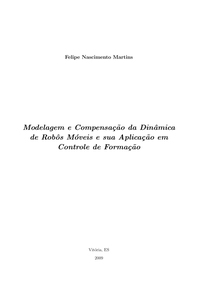This explanatory sequential mixed methods study explores the perceptions of academic and administrative managers responsible for teacher training at a public university in Colombia, as well as their views on improving such training after learning about the performance of teachers student teachers in the 2019 Saber Pro test, the differences in their test scores, and the relationships and statistical correlations between these outcomes and the students’ personal, family, socioeconomic and academic characteristics. Our findings show significant differences in the student teachers’ mean scores and performance when data are grouped according to personal, socioeconomic and academic conditions; a significant relationship between performance and student teacher characteristics; and correlations between critical reading scores and the other competencies assessed. Our data also highlight the lack of knowledge among academic and administrative managers about students’ life circumstances and the diversity of factors that may impact their performance; the importance of correlational data; the difference between expected and true outcomes; the inequity under which students seem to pursue their education; the limitations in access to resources; the training required for teachers to be able to analyze quantitative data and use specific software; the impact of teachers’ critical reading skills on student outcomes; the importance of data-driven decision-making; and the need for teachers to engage in quantitative research practices.
DOCUMENT

Melkveehouders beschikken over alsmaar meer data van hun dieren. De uitdaging is om die datastromen op de juiste manier te gebruiken. Het lijkt erop dat de crux zit in het combineren van verschillende gegevens.
DOCUMENT

Lecture based on abstract at APNEP congress 2016, Porto.
DOCUMENT

Lecture based on abstract at APNEP congress 2016, Porto.
DOCUMENT

Regular physical activity is regarded as an important component of a healthy lifestyle, decreasing the risk of many non-communicable diseases, mental health issues and increasing functioning and quality of life in older adults. Despite these benefits, a substantial segment of the older adult population remains sedentary or insufficiently physically active. In the Netherlands, depending of the definition and measurementmethod used, approximately 40–80% of Dutch adults aged 55 years and older can be considered physically inactive which matches data from other Western countries. For this reason, the GALM was developed. Aim of GALM was stimulating leisure-time physical activity in sedentary and underactive older adults aged 55–65 years. GALM is a community-based approach and distinguishes itself from other community-based strategies by way of the neighborhood-oriented recruitment phase and the versatile recreational sports activity program which is based on behavioral change and evolutionary-biological play theories. Since 1997, over 1.1 million older adults have been approached door-to-door, over 150.000 participated in the fitness test and over 100.000 participated in the GALM program. In this presentation, the theoretical background and short and long-term effects of participation in the GALM project on indicators of health and fitness will be presented.
DOCUMENT

The European thematic network “Polifonia” was developed between 2004 and 2007 and was initiated and coordinated by the European Association of Conservatories (AEC). Within this project four working groups were engaged with the Tuning process (issues of transparency within the Bologna process), pre-college education, the third cycle (doctorate programmes) and “Trends and changes in the European music profession”. The reflections below were given during the annual conference of the AEC, which took place in Strasbourg, France, in November 2007. During this conference the outcomes of the Polifonia project were presented by the chairs of the working group. Rineke Smilde, co-chair of the working group on the Profession, gave on this occasion a qualitative portrait of the trends and changes in the current music profession, as one of the outcomes of the working group.
MULTIFILE

DOCUMENT

The European Higher Education Area (EHEA) requires changes in the way universities are managed. It is an opportunity for correcting imbalances whilst at the same time being a challenge that can mark important differences between universities. This study seeks to identify the challenges and information/training requirements of Spanish university management teams in order to facilitate their integration in the EHEA. Methodology: The Delphi study with the participation of 115 chancellors, vice-chancellors, deans and heads of service of Spanish Universities (EUE) and 26 managers of non-Spanish Universities included in European university quality and management agencies (ENE). For preparing the Delphi study questionnaire, two groups were formed using qualitative research techniques: a first discussion group with the participation of 12 Spanish university managers and a second group in which the Nominal Group technique was applied, with the participation of 18 non-Spanish university managers. Results: The most important challenges are improvement in the quality of education and redefinition of each university's strategy. The EUE group considers it necessary to increase coordination between subjects in order to offer a comprehensive education and promote the renovation of teaching methodologies. The ENE group gives priority to the need for professionalizing university management. The information/training requirements of university managers are: quality management, strategic management and change leadership. Conclusions: There is a notable effort to identify how EHEA integration affects the different disciplines but it is less frequent to address the structural changes needed in universities to be able to successfully accomplish this integration. These include improving the quality of teaching and management, for which managers must have the capacity for innovation and change leadership.
DOCUMENT
